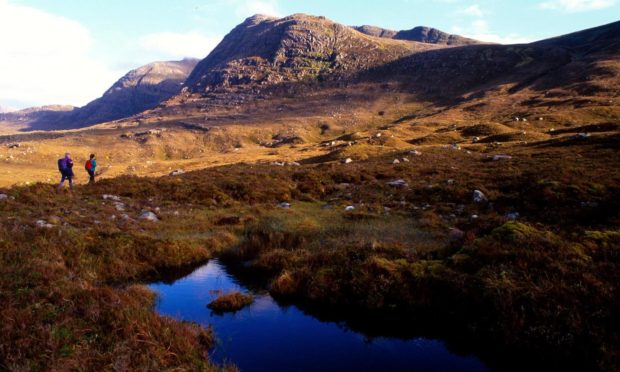Outdoor tourism businesses can turn the Covid-19 crisis into an opportunity by investing to meet new visitor expectations, a conference has heard.
The event was told post-pandemic tourists will be different when the market re-opens and will be keen to be outdoors and active, but away from crowds and demanding improved technology and hygiene.
Operators were advised to explore emerging markets. including disabled adventure tourists, for future business.
The inaugural Adventure Tourism Week opened on Monday with a five-day programme of live webinars aimed at the active, wildlife and marine tourism sectors which were worth £112 million in Britain last year. It is being organised by VisitScotland in partnership with Wild Scotland and Sail Scotland.
Gergana Nikolova, regional director for Europe and Central Asia at the Adventure Travel Trade Association (ATTA), told the virtual audience: “We know that the current crisis experience will leave a deep mark on the attitudes and expectations that will be shaping their decision making and consumption of future travels.”
She recommends investment in innovation and infrastructure to support new expectations, such as contactless technology, visitor flow schemes and accommodation facilities as well as prioritising physical and psychological wellbeing.
“Outdoors businesses and destinations have a chance to flip the crisis into an opportunity by investing in innovation, infrastructure, gear, community building and redesign that will position them to be among the winners when markets recover.
“Start thinking about wellbeing as a non-negotiable characteristic of the leisure industry that will drive design and product innovation as the travel industry seeks to reinvent itself.”
Ms Nikolova also advises operators to think creatively about markets by moving away from “simplistic geographical identification” and focus on “specialised profiling”.
While adventure travel was previously thought of as a risky undertaking, travellers now want to expand their world view, seek new and unique challenges, be in nature and feel better mentally and physically.
“A frequent misconception is that adventure travel is a niche market tied to hard-core extreme outdoor experiences such as skydiving, mountain climbing or paragliding. However, this form of adventure travel only accounts for about 10%.”
She recommends creative thinking to attract the adventure market for disabled people, with 35% of the 7.7 million disabled people of working age in the UK reporting they wish adventure travel, and they also spend more and stay longer.
Another potential market is artists looking for an extended stay to complete a book or other project.
“Together the regions in Scotland and the local businesses can come up with such attractive packages and attract professionals to live like a local and work remotely.”
Chris Greenwood, senior insight manager at VisitScotland, told the event adventure tourism is a catalyst for recovery post-Covid due to increasing popularity in activities such as cycling, running and open water swimming.
He believes the sector will drive economic benefit to communities and contribute to improvements in well-being and recreation opportunities for local people.
“The upsurge in staycations provides opportunities for communities to showcase their eco-credentials as their destination is a boon for adventure tourism, but everyone needs to respect this to preserve the environment for others to enjoy and maintain the essence of why adventure tourism can thrive there.”
